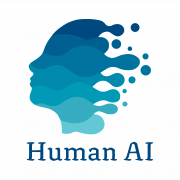Artificial intelligence and innovation
Technological innovation uses various disruptive areas to have a positive impact. Currently, one of those that is having the greatest impact on our lives and on public opinion is artificial intelligence (AI), one of the innovative technologies of the digital revolution.
The field of artificial intelligence has made remarkable progress in recent years and is having a real impact on people. Although the current state of AI technology is still a long way from the foundational aspiration of recreating human-like intelligence, research and development teams are taking advantage of these advances and progressively incorporating them. The ability of computer programs to perform sophisticated text, image and language processing tasks has advanced significantly; for example, in healthcare it is already becoming a reality.
Taking the pulse of innovation
Stanford has a dedicated center that publishes rigorous reports every 4 years on the state and projections for the future, as well as the impact on people and society. This report describes active areas of AI research and innovation poised to have a beneficial impact in the near term.
“Artificial intelligence technology is progressing in so many directions and progress is being driven by so many different organizations that it will surely continue. AI100 is an innovative and forward-thinking response to this trend, an opportunity for us as a society to determine the path of our future and not simply let it develop without us noticing.”
Tom Mitchell, Professor and researcher of Maching Leraning, AI and cognitive neuroscience.
Taking the pulse of technological innovation these days is essential. Only on the basis of a real impact analysis of AI will it be possible to make the right decisions, with a goodtech approach and with ethical and responsible criteria. Artificial intelligence seems to be the future, but it is important to make sure that it is a future in which we want and can live as humans.
What are the most promising opportunities for AI?
One of the opportunities the report notes involves AI capable of augmenting human capabilities. Such systems can be valuable in situations where humans and AI have complementary strengths.
For example, in healthcare, an AI system can synthesize large amounts of clinical data to identify a set of treatments for a particular patient along with potential side effects; a human physician can work with the patient to identify which option best suits his or her lifestyle and goals, and explore creative ways to mitigate side effects that were not part of the AI design space.
An AI system may be better at synthesizing available data while a human being may be better at understanding the implications of the data, working with objectives that are difficult to fully quantify and identifying creative actions beyond what the AI may be programmed to analyze.
Artificial intelligence is not only automation of tasks and processes, it also can be and is a catalyst for innovation in different sectors. The challenge is to reconcile innovation with humanization, both of the technology and of the people who make use of it. In this way this binomial will achieve what for some might seem like magic, today is science applied to the service of human development.
If you work in a context of evaluation, assessment and development of people, request our free demo, an innovative tool at the service of human development:





